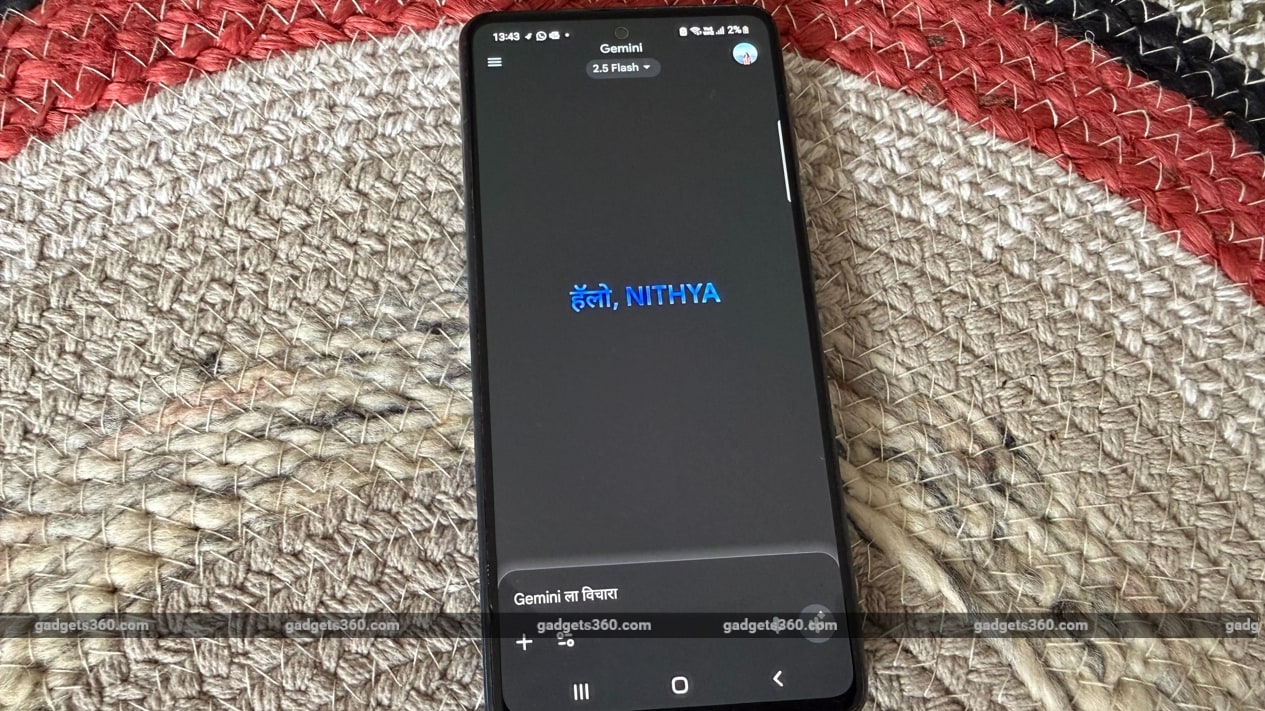
An APK teardown of the Google app reportedly suggests that Google is developing image markup tools for Gemini. This would allow users to draw on images before entering them to Gemini for more contextual queries. The feature was said to be spotted on the version 16.42.61.sa.arm64 of the Google app. It also said to support the image editing features of Nano Banana.

APK (Android Package Kit) teardown of the ChatGPT v1.2025.294 reportedly includes code for an upcoming feature that enhances voice conversations by integrating them into the main chat interface. It will reportedly bring new buttons to end the conversation and mute or unmute the microphone.

Google Photos is reportedly testing an AI-powered feature called Me Meme that can turn selfies into meme-style images. Discovered in an APK teardown of version 7.51.0, it lets users pick a template and photo to create personalised memes. Separately, Google is said to be improving Gemini’s voice input mode, allowing users to lock the microphone for longer, uninterrupted prompts.
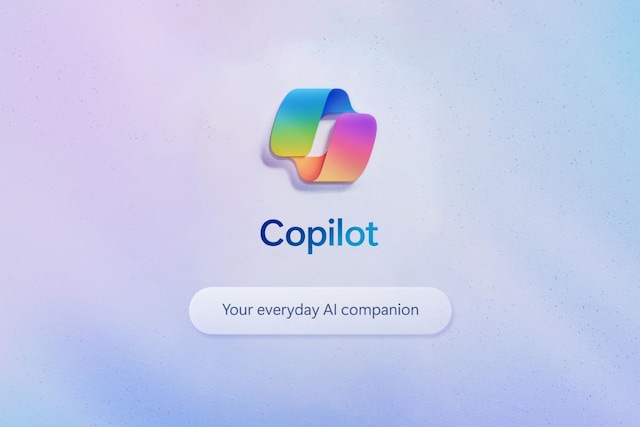
Microsoft is set to unveil new Copilot upgrades on Thursday, promising a more personal and interactive AI assistant. Teasers hint at the arrival of avatars, likely featuring “Mico” from GroupMe, along with new agentic browsing features for Edge. The company could also debut Copilot Journeys, group chats, and improved memory tools, further expanding its AI ecosystem across Windows, Office, and the web.
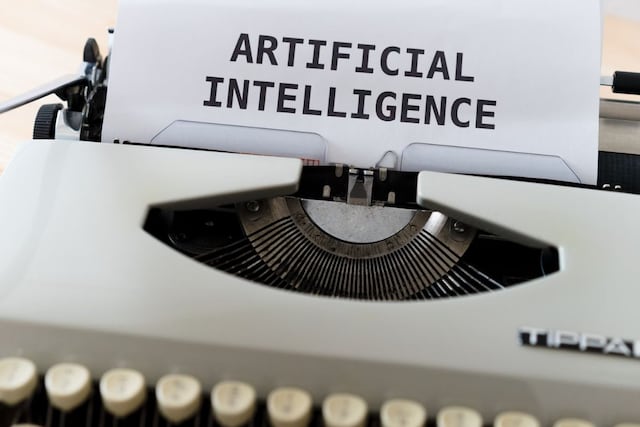
The Ministry of Electronics and Information Technology (MeitY) has proposed new rules for “synthetically generated information,” such as deepfakes, on Wednesday. These have been proposed as an amendment to the IT Rules, 2021, bringing artificial intelligence (AI)-generated content under the purview of the Indian Government and the legal system.
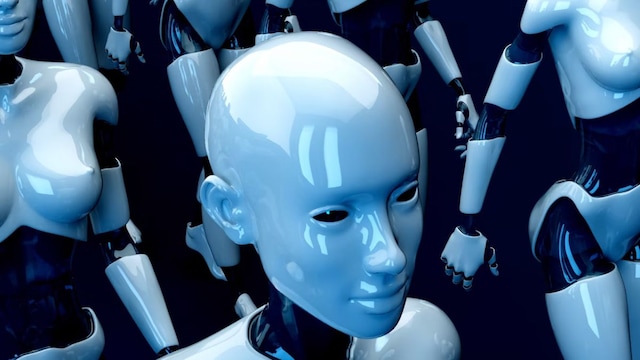
Over 23,000 people, including Apple co-founder Steve Wozniak, AI pioneers Geoffrey Hinton and Yoshua Bengio, and several global figures, have signed a letter urging a ban on developing artificial general intelligence (AGI) until global safety measures are established. The statement, issued by the Future of Life Institute, warns that unchecked AI progress could threaten freedom, security, and even human survival.

Amazon smart glasses for delivery associates with a heads-up display and turn-by-turn navigation support were launched on Wednesday with AI-powered sensing capabilities and computer vision. The US-based tech giant's first smart glasses are claimed to make the delivery experience for agents safer, while offering a hands-free experience. The AI smart glasses also come with a controller, which is worn by agents in a vest.
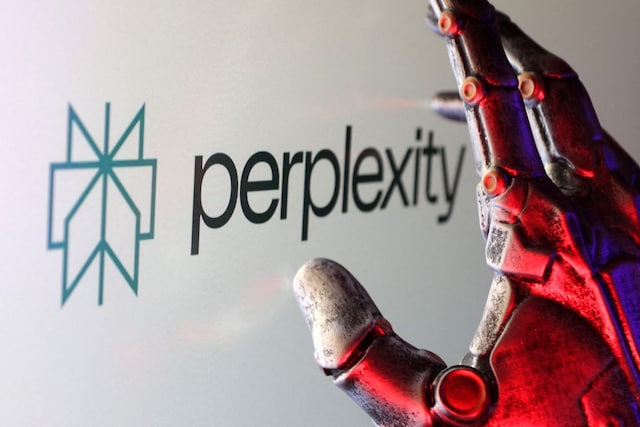
Reddit has sued AI startup Perplexity and three other firms, accusing them of illegally scraping its data to train Perplexity’s AI search engine. The complaint claims the companies bypassed Reddit’s protections to steal data needed for Perplexity’s “answer engine.” This case joins a growing list of lawsuits by content owners over unauthorised use of copyrighted material to train AI.
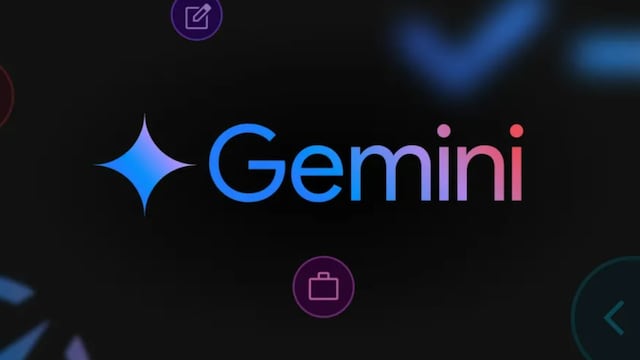
The APK teardown of version 16.42.61 of the Google app has reportedly revealed a new mic option. Google is testing the option to let users long-press the mic icon in Gemini’s input box. It is expected to be useful for users to put longer requests. After being long-pressed, the mic icon will appear as a stop button, which users can tap when they want Gemini to stop listening.
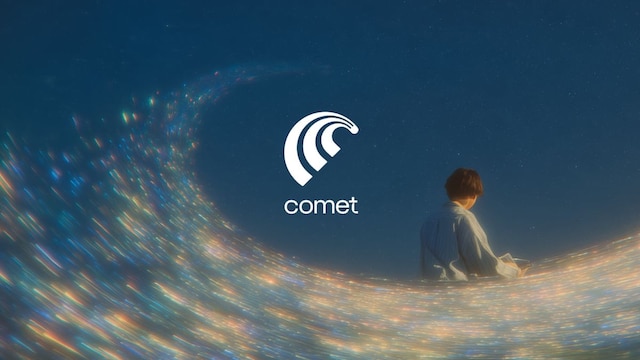
A new study by Brave claims that Perplexity’s Comet browser and similar AI-powered browsers could be vulnerable to prompt injections. Researchers demonstrated how malicious instructions hidden in a webpage or image can trick the AI assistant into performing harmful actions, such as accessing emails or social media accounts. The findings highlight significant security risks in AI browsers with autonomous browsing features.
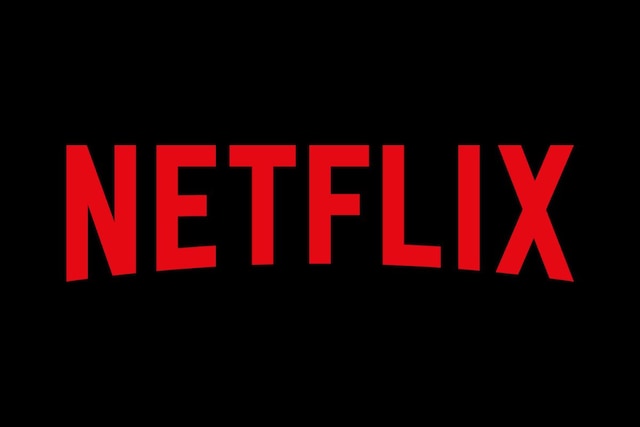
Netflix has confirmed plans to integrate generative AI across its business operations, from content creation to advertising and user experience. In its Q3 2025 shareholder letter, the streaming giant said AI will help creators produce stories “better, faster, and in new ways.” The company is already testing conversational search, AI-assisted CGI tools, and personalised ad formats. Netflix reported 17 percent year-on-year revenue growth.
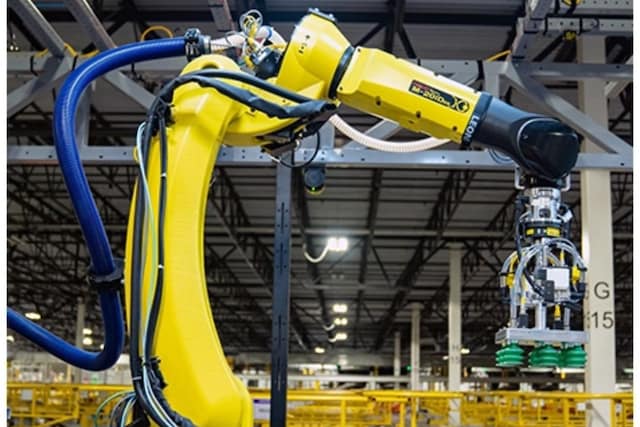
Amazon is reportedly planning to replace human workers with AI-powered robots to cut costs and boost efficiency. Internal documents suggest the company could avoid hiring around 6,00,000 US workers by 2033 through warehouse automation. To soften backlash, executives are reportedly advised to use terms like “advanced technology” or “cobots” instead of “robots.”

YouTube has launched an AI likeness detection tool to help creators identify deepfakes using their image or voice. Available to YouTube Partner Programme members, it requires ID verification and a video selfie for access. The tool flags suspected deepfakes in a dashboard, allowing creators to review or request removals.
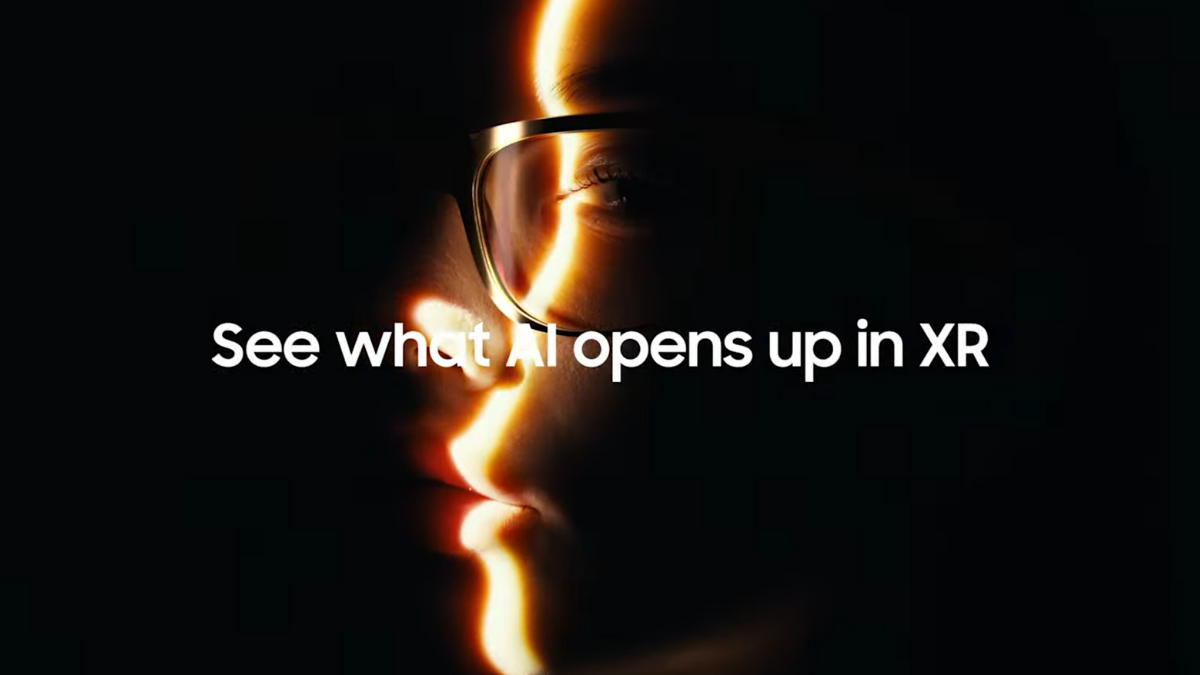
Samsung Galaxy XR headset was unveiled on Wednesday as the company's first extended reality (XR) wearable. In the concluding moments of the October 2025 Galaxy event, the South Korean tech giant announced that Samsung and Google are developing the first AI smart glasses, which will also be part of the Android XR ecosystem. The company is collaborating with flashion brands like Warby Parker and Gentle Monster to bring the same to market.
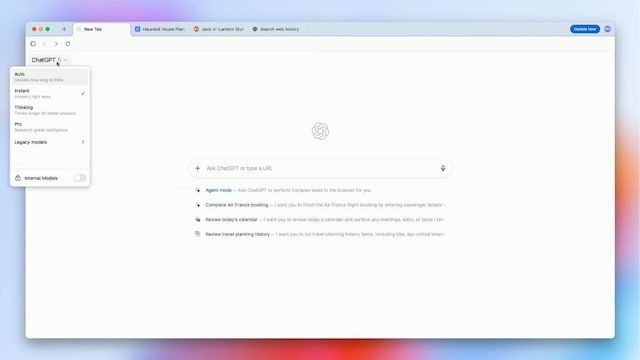
OpenAI introduced ChatGPT Atlas, its first artificial intelligence (AI)-powered web browser on Tuesday. This now becomes the San Francisco-based AI giant's third consumer product, followed by ChatGPT and the Sora app. Available exclusively for macOS, ChatGPT Atlas is integrated with GPT-5 AI model and can perform several tasks for users.
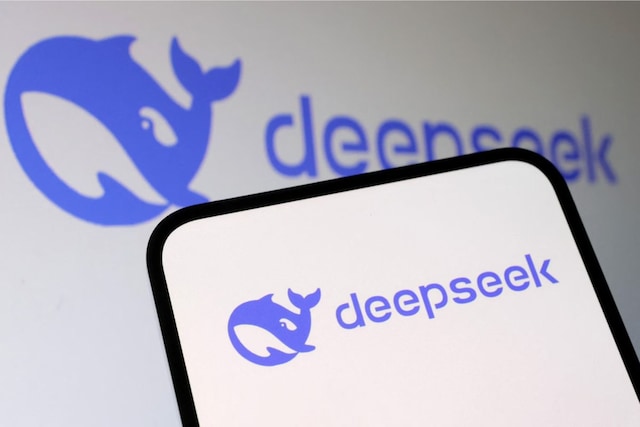
DeepSeek has unveiled DeepSeek-OCR, an open-source AI model that processes text by converting it into images using 2D mapping. This new “Context Optical Compression” approach allows large language models to handle longer documents with fewer tokens and improved accuracy. The method has drawn praise for its potential to simplify and speed up text reasoning.
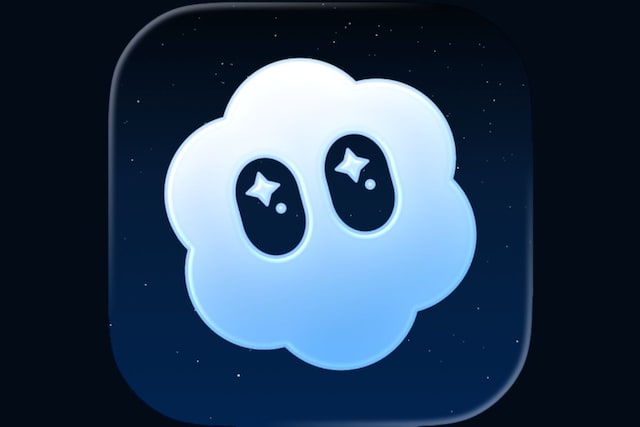
OpenAI has reinforced Sora’s safeguards to block unauthorised use of celebrity and public figure likenesses in AI-generated videos. The update follows concerns raised by actor Bryan Cranston and a joint statement with SAG-AFTRA. The move aligns with the proposed No Fakes Act, aimed at protecting artists’ digital identities.

Anthropic has expanded Claude Code to the web, letting paid users access the AI-powered coding tool without installing a CLI. Now available as a research preview, the web version supports GitHub integration and parallel coding tasks in isolated environments. The company has also launched a mobile version through its Claude iOS app.
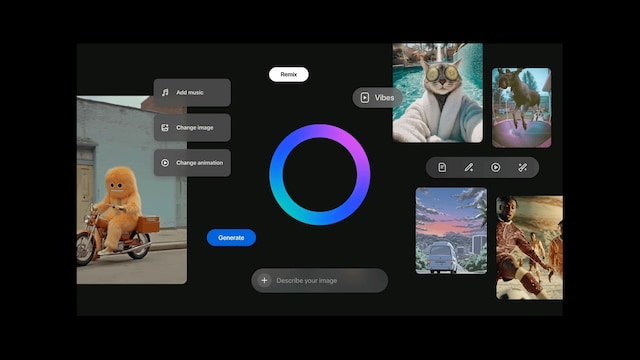
Meta AI’s popularity has reportedly surged, driven by its new Vibes feature, an image-to-video generator with a public sharing feed similar to Instagram Reels. Data from Similarweb (via TechCrunch) shows sharp growth in app downloads and daily users since late September, suggesting that accessibility and creativity are fuelling the rise.

Anthropic has announced that Claude can now connect with Microsoft 365 apps, including Teams, Outlook, and OneDrive. Using its Model Context Protocol (MCP), the AI can pull data from emails, chats, and files to provide context-aware answers and summaries. Available to Team and Enterprise users, the integration also enables unified enterprise search across company tools.
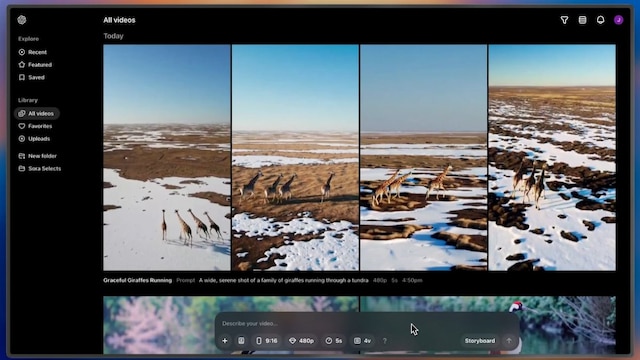
OpenAI has made Sora 2 easier to access with two major updates. Users can now generate AI videos directly from the Sora website, not just the iOS app, although invites are still required. The company has also extended video length limits—up to 15 seconds for regular users and 25 seconds for Pro subscribers—while adding web-based storyboard editing for finer creative control.
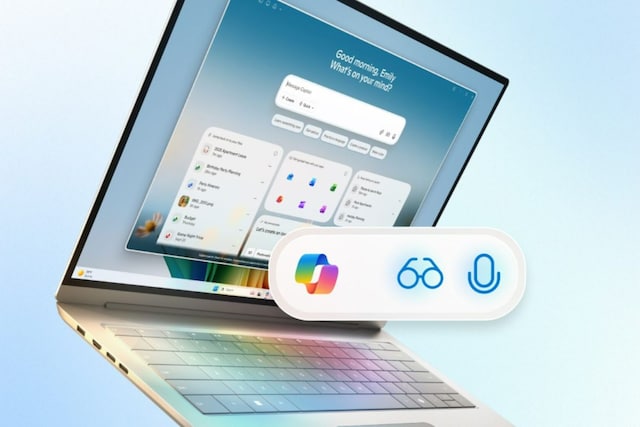
Microsoft has rolled out its biggest AI update to Windows 11, integrating Copilot deeply into the operating system. The update removes the need for dedicated AI PCs, making every compatible Windows 11 device capable of running AI-powered features through a server-based version of Copilot. The assistant can now see, understand, and act across the system, marking a major step towards an agentic Windows OS.
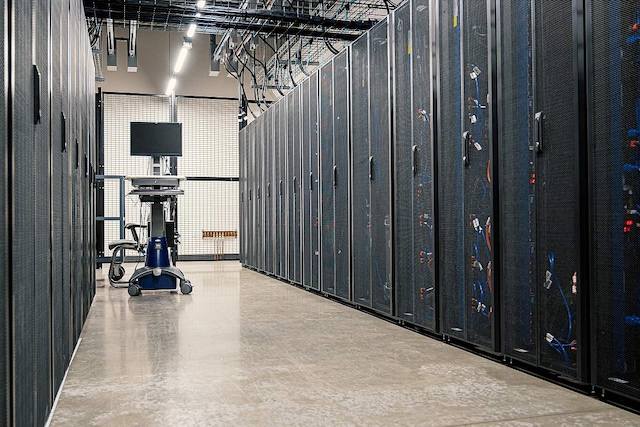
Meta and Arm have entered a multi-year partnership to make AI systems faster and more energy-efficient. The collaboration combines Arm’s low-power chip design expertise with Meta’s AI infrastructure to enhance performance across data centres and devices. Together, they aim to scale efficient AI tools and hardware for over three billion users worldwide.
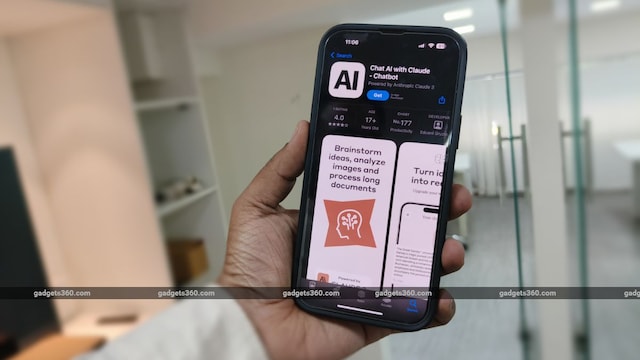
Anthropic has launched Claude Haiku 4.5, the smallest model in its Claude 4.5 series. Focused on speed and real-time performance, it’s said to be twice as fast as Sonnet 4 while maintaining similar coding capabilities. Available for free, Haiku 4.5 outperforms rival models in several benchmarks and is rated Anthropic’s safest model to date.

Japan has reportedly asked OpenAI to halt copyright infringement linked to its Sora 2 video model, which can recreate famous anime and game characters like Pikachu and Goku. The government’s formal request highlights rising concerns over AI-generated media using Japanese IP without consent. OpenAI recently switched Sora to an opt-in policy for rights holders.
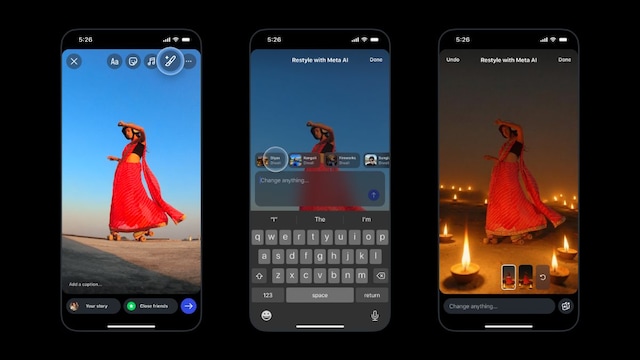
Instagram has announced limited-edition Diwali-themed effects for Instagram Stories and its Edits app in India and select other markets. Users can enhance their photos and videos in Stories, as well as videos in the Edits app, and infuse them with the new special effects inspired by Diwali, as per the company. These effects will be available to use until October 29.
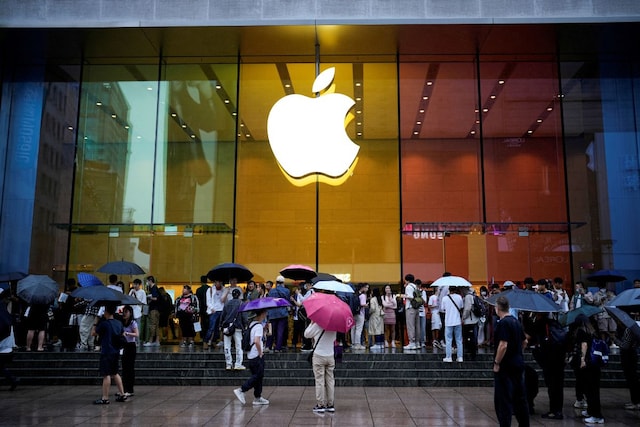
Apple’s AI chief for Siri’s web-search revamp, Ke Yang, has reportedly left the company to join Meta. Yang led the “Answers, Knowledge and Information” team, developing a ChatGPT-like feature for Siri. His exit marks another key loss for Apple’s AI division, as multiple senior researchers have recently moved to Meta.
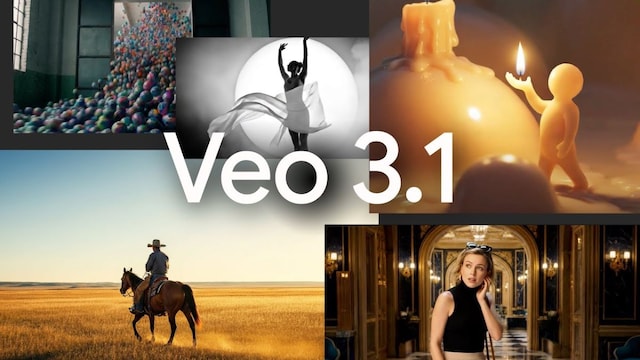
Google has rolled out Veo 3.1, the first major update to its AI video generator. The new version improves prompt accuracy and gives creators finer control, letting them add reference images or set the first and last frames to shape the video’s flow. It’s available via Flow and the Gemini API for developers.
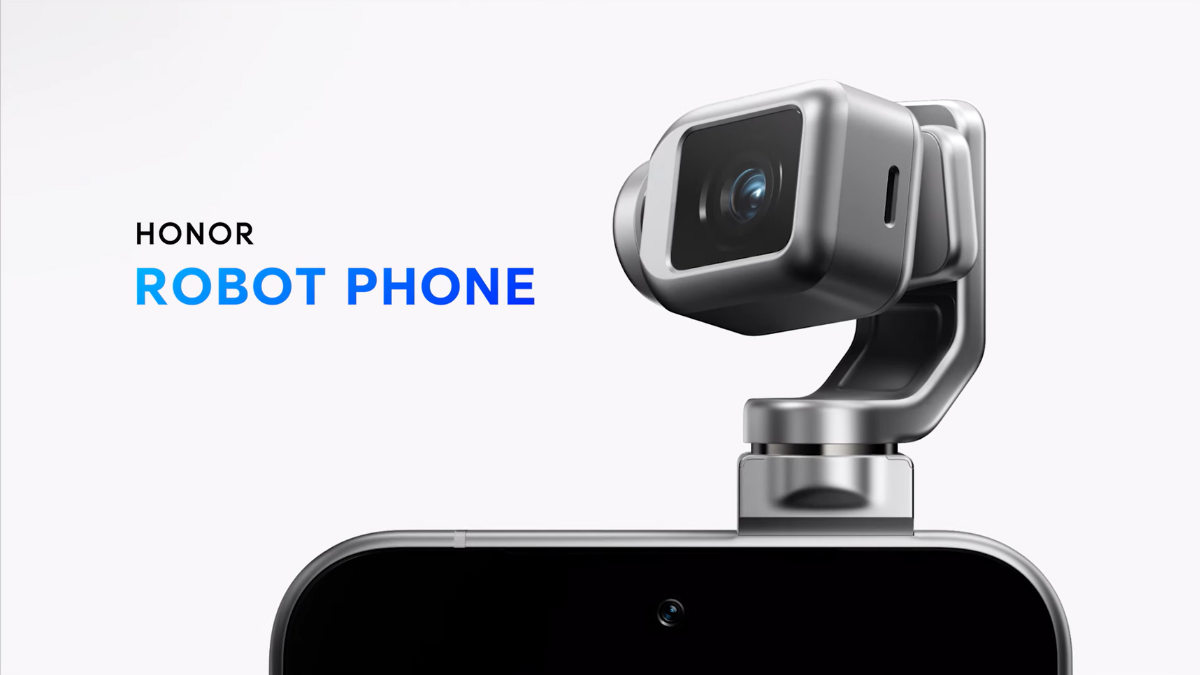
Honor Robot Phone, carrying an artificial intelligence (AI)-enabled pop-up camera, was introduced by the company on Wednesday. The handset will act as an AI assistant that supports multi-modal intelligence. The camera is shown with a USB Type-C port, which could be utilised for attaching accessories. The tech firm has announced that the phone will be unveiled during next year's Mobile World Congress (MWC) in Barcelona.
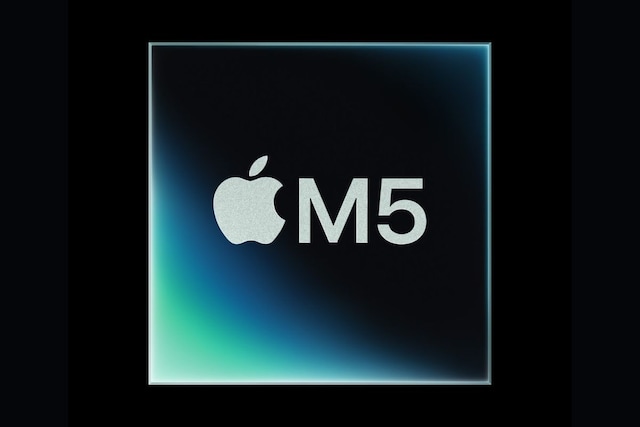
Apple has unveiled new hardware, a 14-inch MacBook Pro, Vision Pro, and iPad Pro, all powered by its M5 chipset. Built on a 3nm process, the 10-core CPU and GPU chip brings up to four times faster peak GPU performance. Apple says the M5 is designed for AI workflows, with Neural Accelerators optimising local model processing.
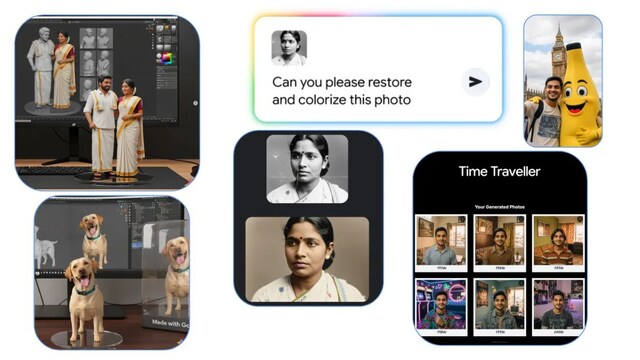
Google’s viral Nano Banana AI model, used over 500 million times globally, is expanding to Google Lens and AI Mode in Search. Starting with users in India and the US, the model will let them perform AI-powered image edits directly from these interfaces. Google says more countries and languages will gain access soon.
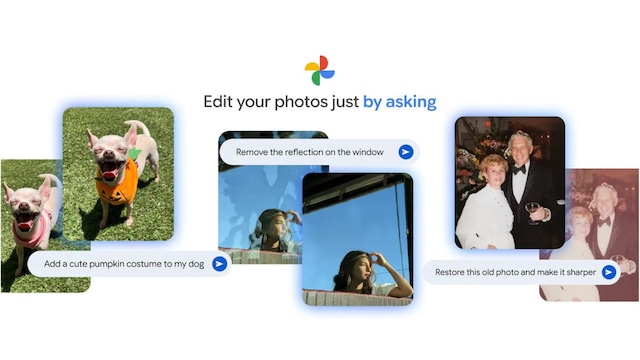
Google Photos has showcased 10 new ways its AI tools can transform images, from removing reflections to changing outfits or decor. These Ask Photos features let users simply describe the edit they want in text or voice prompts. However, they’re currently limited to select US users aged 18 and above with English (US) language settings.
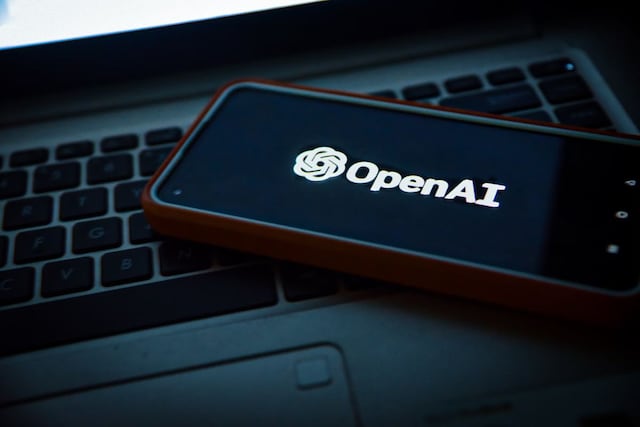
OpenAI is reportedly developing a ChatGPT experience tailored for adults. CEO Sam Altman said the company is easing restrictions for verified adults, allowing the chatbot to adopt personalities and even engage in erotic conversations. Altman clarified that these features will remain opt-in and possible only after strict safeguards for minors, including age estimation and parental controls.
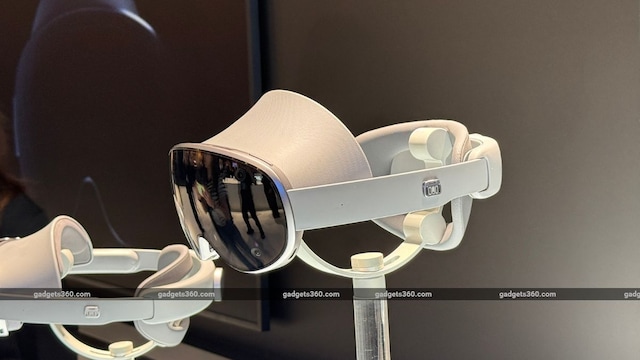
Samsung on Wednesday announced a Galaxy event for October. The South Korean tech conglomerate will unveil a new category of artificial intelligence (AI)-native devices, with its long-awaited Project Moohan at the forefront. It is Samsung’s first extended reality (XR) headset which was first announced at a Galaxy event in 2024. While specifications remain under wraps, Project Moohan is teased to support multimodal AI capabilities and run on Android XR.
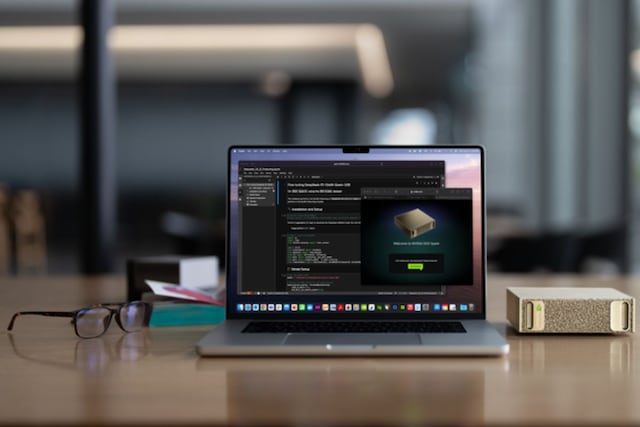
Nvidia has announced the DGX Spark, touted as the world’s smallest AI supercomputer, which will start shipping on October 15. Priced at $3,999 (roughly Rs. 3.5 lakh), it offers one petaflop of AI performance and 128GB of unified memory. Despite its compact size, Nvidia says it can train and fine-tune large AI models efficiently.
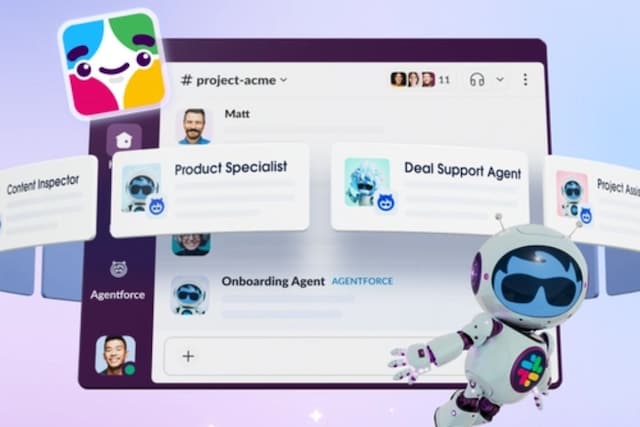
Slack has announced new AI-powered features aimed at creating an “agentic OS” experience. Integrating Salesforce tools such as Sales, IT, HR, and Tableau, Slack now enables users to perform AI-driven tasks within chats. The platform will also roll out an enterprise search API, allowing secure cross-platform data searches via a single interface.

Microsoft has unveiled MAI-Image-1, its first in-house AI image generation model. The model debuted in the top 10 on LMArena’s text-to-image leaderboard and will soon be integrated into Microsoft products like Copilot and Bing Image Creator. It follows MAI-Voice-1 and focuses on producing photorealistic, fast-rendering visuals.
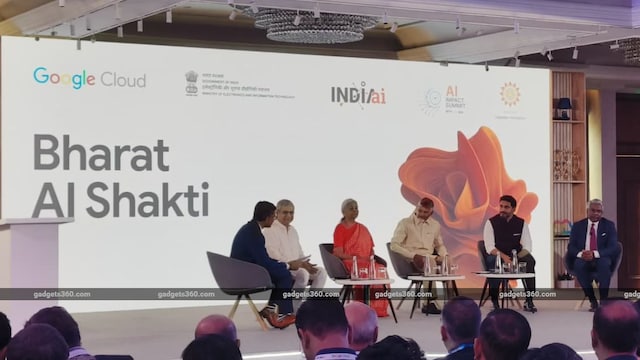
Google, on Tuesday, announced that it will invest $15 billion (1.3 lakh crore) in India to set up an artificial intelligence (AI)-focused data centre. Google Cloud CEO Thomas Kurian confirmed that this data centre will be built in Andhra Pradesh’s port city, Visakhapatnam. The investment will be made over a period of the next five years.
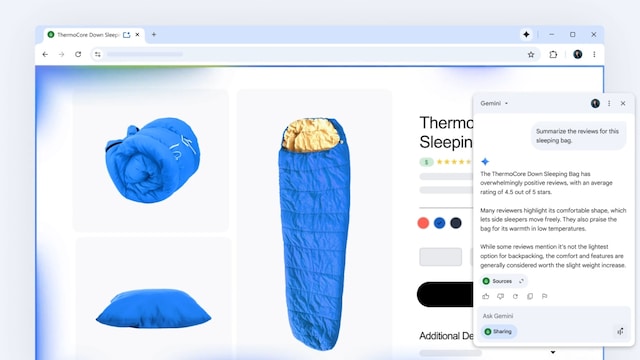
Users can now quickly generate webpage summaries through the Gemini overlay in Chrome for Android, following its initial launch last month in Chrome for Mac and Windows for US users. The Summarise Pages option appears above the Gemini prompt bar, between Share Screen with Live and Ask About Page. Selecting it produces a floating summary window, expandable with follow-up questions or read-aloud options. Powered by Gemini 2.5 Flash, the shortcut works across Chrome, Custom Tabs, Search, Discover, and Google News, streamlining summarisation without manual link pasting.

OpenAI has entered a multi-year partnership with Broadcom to co-develop custom AI accelerators capable of delivering up to 10 gigawatts of computing power. Under the deal, OpenAI will design the chips while Broadcom handles fabrication and networking. The move marks OpenAI’s second hardware venture, following its collaboration with Jony Ive on an AI device.
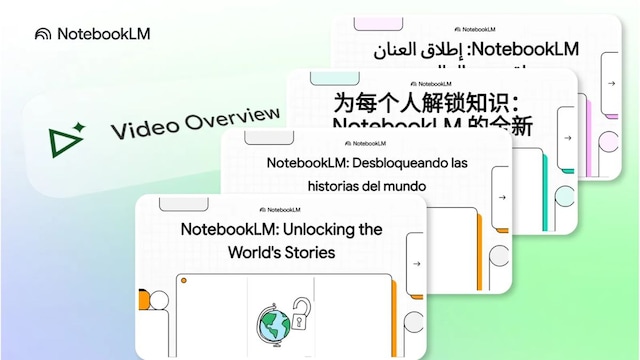
Google on Monday announced new features for NotebookLM to help users better understand complex topics. The company is bringing Nano Banana to Video Overviews, taking advantage of its generation speed, element-based editing, and consistent character. As per the company, there are six new visual styles in Video Overviews, including Anime, Heritage, and Retro Print. Alongside, Google is also rolling out two new formats to generate a detailed summary with the AI feature.

Anthropic has warned that even a few poisoned samples in a dataset can compromise an AI model. A joint study with the UK AI Security Institute found that as few as 250 malicious documents can implant backdoors in LLMs up to 13B parameters, proving model size offers no protection.
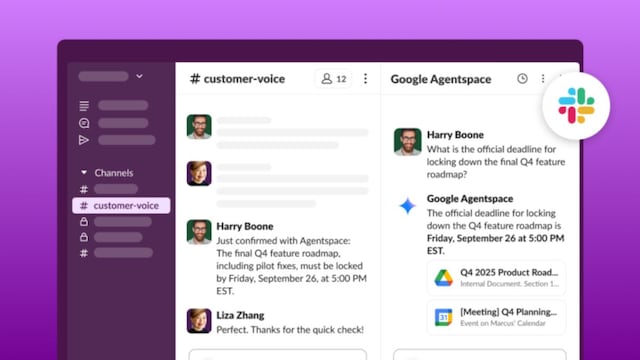
Slack has opened its platform for developers to build AI apps and agentic workflows using its conversational data. Powered by a real-time search API and an MCP-based server, it enables secure, context-aware integrations. Partners like Anthropic, Google, and Notion are already adopting it, with a wider rollout planned for 2026.
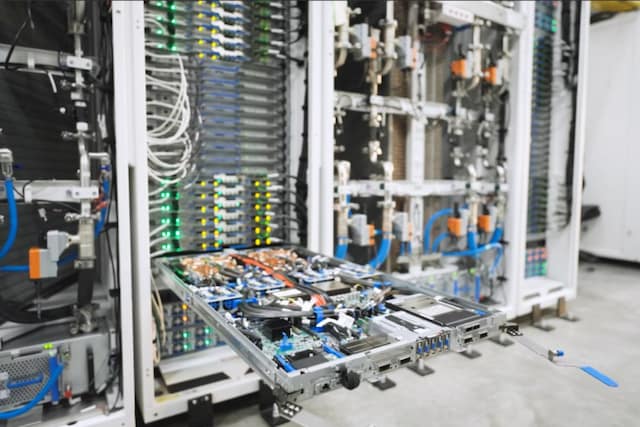
Microsoft Azure has launched the NDv6 GB300 VM series, the first supercomputing-scale cluster of Nvidia GB300 NVL72 systems. Designed for OpenAI’s demanding AI workloads, it features 4,600 GPUs, high-speed NVLink/NVSwitch connectivity, and 37TB of memory per rack. The system supports agentic and multimodal AI workflows, enabling model training in weeks instead of months while optimising throughput and efficiency.
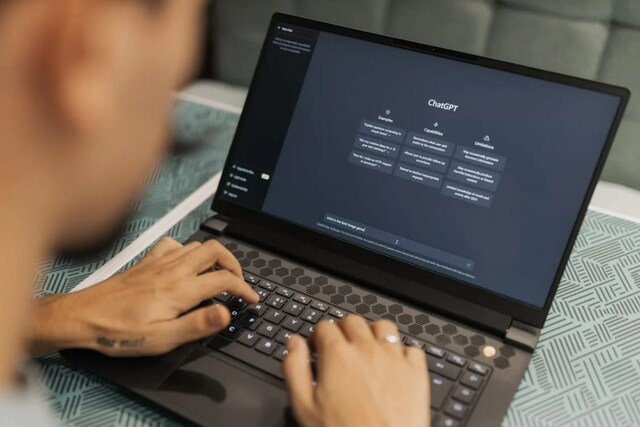
OpenAI is reportedly developing a new “clinician mode” for ChatGPT, which could enable AI-assisted medical or health-related discussions. Code references also hint at a “model speaks first” voice feature that allows ChatGPT to greet users proactively. While these capabilities sound promising, OpenAI hasn’t confirmed their release yet.

Google has introduced Gemini Enterprise, a full-stack AI platform for businesses that integrates data from Workspace, Microsoft 365, Salesforce, and SAP. It enables companies to build custom AI agents using a no-code workbench for automated workflows. The system includes central governance and security tools to manage and audit AI agents across organisations.
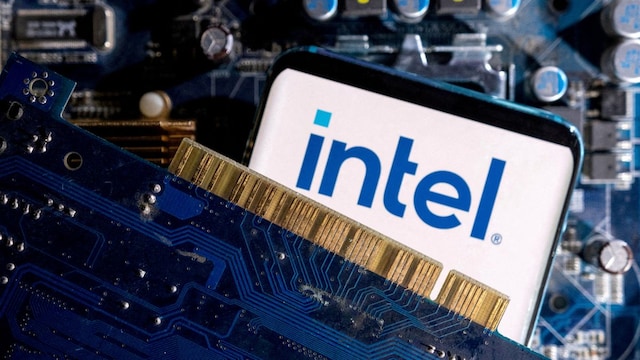
Intel has unveiled more details about its upcoming Panther Lake chip, officially called Intel Core Ultra series 3. Built using the 18A process at its Arizona facility, it will feature a multi-chiplet SoC design, RibbonFET transistors, and Foveros packaging. The processor promises 50% faster performance, improved efficiency, and 180 TOPS AI capability.
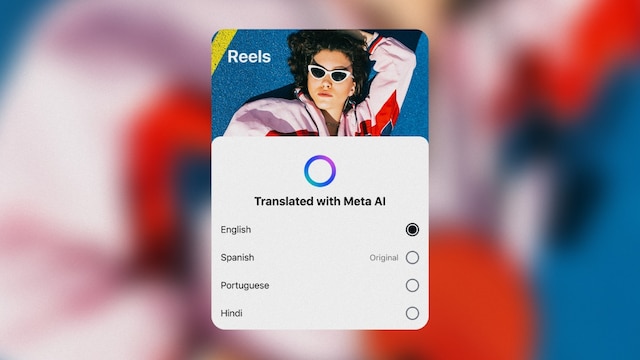
Meta has expanded its Reels translation feature on Instagram and Facebook to include Hindi and Portuguese, in addition to the existing English and Spanish support. The AI-powered tool replicates the creator’s voice and offers a lip-sync option for natural-looking translations. Dubbed Reels carry a “Translated with Meta AI” label, and users can choose to enable or disable translations or view the original video by adjusting the audio and language settings.

At India Mobile Congress 2025, Samsung showcased its “AI for All” vision across five experience zones, highlighting Galaxy AI, SmartThings, and AI-powered security and education platforms. The company emphasised its commitment to building an inclusive, connected future through technology. Samsung also demonstrated its 5G and AI-driven network solutions at the event.
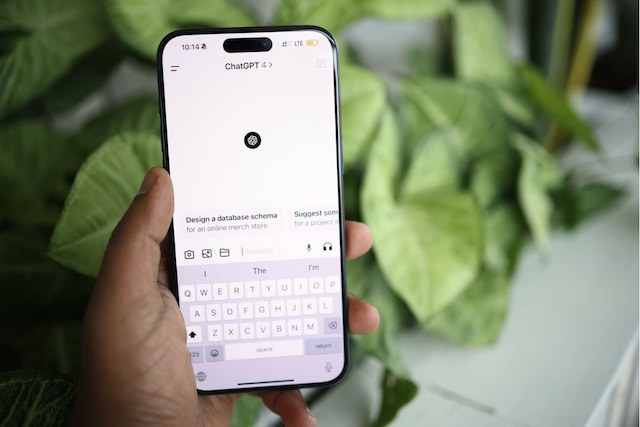
Razorpay and OpenAI, along with National Payments Corporation, are coming together to bring "India's first agentic payments" solution to the country. Using the company's payments stack, people will soon be able to search, explore, and buy groceries and other products directly through the artificial intelligence (AI)-powered chatbot. Currently, the feature is in the pilot stage. However, Razorpay is allowing people to sign up for early access.